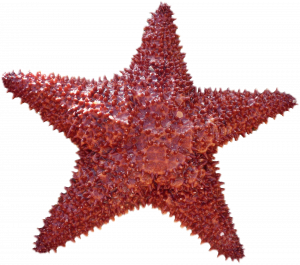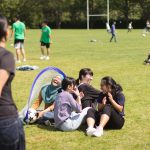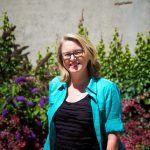Prescription for a Healthy Planet – Act Local Think Global
The human population is healthier than it has ever been before. We’ve seen rising life expectancy and lowering poverty and child mortality rates. But we have also exploited the planet at an unprecedented rate. Carbon dioxide emissions, ocean acidification, and energy use is rising, while fertile farmland, potable water sources, and tropical rainforests are diminishing.
So began a presentation by Verena Rossa-Roccor, a PhD student at UBC’s School of Population and Public Health (SPPH). She was presenting at our October Nursing Rounds (a seminar series during the academic year featuring UBC Nursing faculty and students who share emerging research in nursing). Entitled Act Local Think Global, the session was organized by Raluca Radu, a Master’s student at the School of Nursing and a fellow presenter. Kelsi Jessamine, a recent alumni who is also pursuing her Master of Science in Nursing, added to the discussion. Together the three researchers examined the juncture between nursing and a healthy environment.
INTRODUCTION TO PLANETARY HEALTH
Presenting first, Verena Rossa-Roccor provided a brief overview of concepts, offering Richard Horton and Selina Lo’s definition: “Put simply, Planetary Health is the health of human civilization and the state of the natural systems on which it depends.”
She introduced the term Anthropocene: a new geological time (like “Jurassic”) that recognizes, for the first time ever, human activity as a geological force. She also outlined Kate Raworth’s concept of Doughnut Economics: where the goal is to operate within a framework of economic checks and balances so that everyone can profit, including the planet itself.
REFLECTIONS FROM THE BC COALITION INSTITUTE: A NURSING PERSPECTIVE
Raluca Radu attended the BC Coalition Institute workshop, part of the Canadian Coalition for Global Health Research. Her intent was to learn what is meant by “Global Health” and how to shift her research to align with the recommendations put forth. She took away four key points:
- An inextricable link exists between environment and human health

- Indigenous sovereignty could save the planet
- Education is instrumental
- Inter- and trans-disciplinary collaboration is essential
Radu noted how reframing ancient tenets helps to focus on the intersection of nursing with planetary health. Healthcare Without Harm (2019) frames that connection this way:
Given its mission to protect and promote health, the health sector has a responsibility to implement the Hippocratic Oath to “first, do no harm” as it relates to its own climate footprint, while influencing other sectors to do the same.
Radu offered a number of resources for continuing the study of the role of nursing in environmental health and put forward several professional and individual recommendations, including taking leadership roles in adaptation efforts. “Because nurses are well-positioned to identify vulnerable populations, they are also best-positioned to develop and implement emergency plans.”
ONE HEALTH COMMUNITY CLINICS
Kelsi Jessamine’s work with Community Veterinary Outreach informs her research and has been featured in previous issues of Touchpoints. The basis of Jessamine’s presentation on environmental health is that it is not a separate entity from animal health and human health. She advocates for a multi-sectoral, interdisciplinary approach where each of the three fields works collaboratively to address potential risk at the human-animal-environmental interface. The object is to design policies, programs, and research that address issues in each sector in order to achieve the best outcomes for all.
The full Nursing Rounds presentation is on our Youtube Channel.
bit.ly/SoNGlobalHealth






